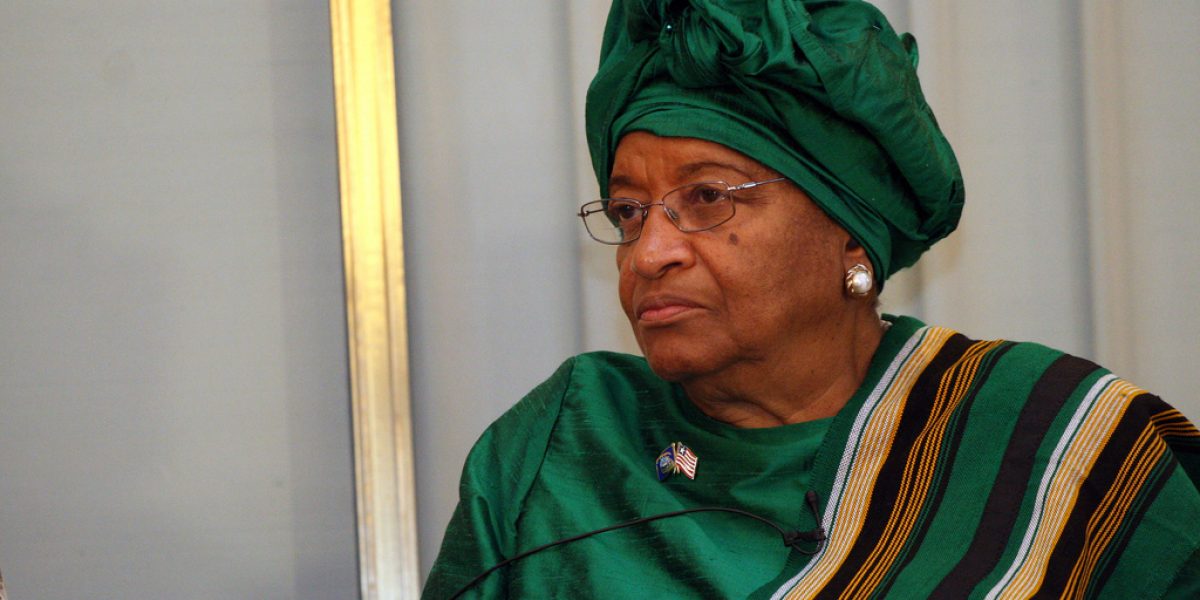Since this follows hard on the heels of the 15th ratification of the African Union Protocol on Women’s Rights, it seems Africa may well be on the cusp of a long-delayed wave of empowerment of women. Johnson-Sirleaf called her electoral victory a victory for all African women, and has intimated that she hopes to use feminine sensitivity and maternal nurturing qualities to help heal the wounds of the 14-year-long civil war that has brutalised Liberia’s population.
The value of women’s empowerment was underscored last month by the United Nations’ Population Fund, whose annual report maintains that “investments in gender equality and reproductive health offer multiple rewards that can accelerate social and economic progress, with lasting impact on future generations”. The growing number of women assuming leadership positions in Africa can act as a catalyst for policy change and help speed the progress of women in their communities.
Although there is still a dearth of women in high office on the continent, we have recently witnessed a number of firsts in the corridors of power, culminating in the Liberian presidency. This year saw Deputy President Phumzile Mlambo-Ngcuka named the first woman to hold SA’s second-highest office, while Luisa Dias Diogo became Mozambique’s first female prime minister in 2004. Kenyan environmentalist and cabinet minister Wangari Maathai was the first African woman to be awarded a Nobel peace prize last year, and during 2003-2005 Senegal’s Marie-Angelique Savane was the first female chair of the African Peer Review Panel. And Rwanda set a world record last year by electing female parliamentarians to almost half the seats in the national legislature.
Now that the previously all-male bastion of the African Union (AU) has been stormed, women around the continent will look to these influential role models to help improve the status and quality of life of their sisters, who are largely excluded from the market economy. Indeed, due primarily to prevailing patrilineal norms, women — who produce almost 80% of sub-Saharan Africa’s food — own only 1% of the region’s land. Considering that the average European cow lives better (on its $2,50 a day subsidy) than the average African woman (who must subsist on less than a dollar a day), the plight of the continent’s women should surely leave a deep scar on the collective conscience of our leaders. Further, a cursory consideration of the appalling literacy, education and maternal mortality statistics for African women should make that wound fester anew.
Perhaps it is this cruel reality that has led five countries to ratify the women’s protocol during the past four months. When, on October 26, Togo became the 15th nation to ratify the Protocol to the African Charter on Human and Peoples’ Rights on the Rights of Women in Africa, the instrument became enforceable under international law, coming into effect within 30 days. Thus, by the end of this month, its signatories will be under a legal obligation to uphold the broad range of rights of women described in the protocol, which encompass particularly vulnerable groups such as widows, the elderly and the disabled.
Breaking new ground in international law, the protocol calls for the prohibition of female genital mutilation, and it upholds women’s reproductive rights to medical abortion in cases of rape, incest or danger to the mother’s life.
This is certainly a victory for the women’s movement. But Gladys Mutukwa of the women’s nongovernmental-organisation network WiLDAF cautions that “there are 38 member states of the AU that have not yet ratified the protocol. Our work will not end until they too show their commitment to women’s rights.”
The ratification is an important first step towards improving women’s lives. States must validate their ratification by aligning their domestic legislation with the instrument, and then provide appropriate tools within the judiciary and the state bureaucracy to ensure that the rights enshrined in the document are implemented and respected in practice. The female African leaders who have joined the top echelons of power on the continent must pressure their peers to demonstrate the necessary political will to uphold the protocol.
Hopefully, with their efforts, the conditions for the hitherto neglected half of Africa’s citizens will improve. With better development and use of this enormous human resource, Africa herself will move faster towards peace and prosperity.








